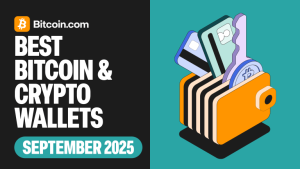10.09.2025 11:25
From internet sources, it is reported that AI agents can now conduct API payments using USDC, achieving settlements in as little as 200 milliseconds, following Coinbase's activation of its x402 Bazaar.
Coinbase has introduced x402 Bazaar, a platform designed to facilitate AI agent-driven micropayments. This innovative catalog presents a machine-readable index of services that readily accept pay-per-request USDC payments, serving as a crucial discovery layer for both AI agents and developers who are integrating the x402 protocol. Currently, the Bazaar is in its nascent stages of development, indexing endpoints that are settled via Coinbase's hosted facilitator.
The x402 protocol breathes new life into the HTTP 402 "Payment Required" status code, establishing a repeat-request mechanism where the client appends a signed payment payload. Coinbase's hosted facilitator takes charge of verifying and finalizing these payments. Crucially, this arrangement eliminates the need for sellers to manage their own blockchain infrastructure, and the company has stated that it levies no facilitator fees for USDC transactions on the Base network. As per Coinbase's documentation, the current network support encompasses USDC on the Base mainnet and Base Sepolia, with plans to introduce additional assets in the future. Further insights can be found in the x402 overview, facilitator documentation, and an explanation of HTTP 402 on MDN.
The underlying economic model, as outlined in the whitepaper, centers on sub-second confirmations and remarkably low gas fees. It draws a comparison between "x402 (on Base)" and traditional payment methods, highlighting a settlement path of 200 milliseconds and nominal gas costs that fall far below one ten-thousandth of a dollar, particularly when contrasted with the fees associated with card transactions and batch settlements. The Bazaar's list endpoint delivers structured JSON data for each available resource. This data includes details such as the accepted asset, the network, the destination address, and the maximum amount required, all expressed in the token's atomic units.
An illustrative example provided showcases a `maxAmountRequired` of 200 for USDC on Base, which equates to a mere $0.000200 when considering 6-decimal precision. This example effectively demonstrates the system's designed price granularity for per-call payments. In terms of execution, Base's Flashblocks feature contributes by providing 200-millisecond preconfirmations, thereby reducing the perceived confirmation time for interactive applications. When network latency is factored in, infrastructure providers report that typical end-to-end acknowledgments fall closer to the 300–500 millisecond range, even though Base's standard block time remains two seconds. For APIs that operate on a metered basis, this latency allowance can render priced retries a practical option without negatively impacting the user experience. Additional information on Base Flashblocks and a provider explainer can be found on Chainstack.











